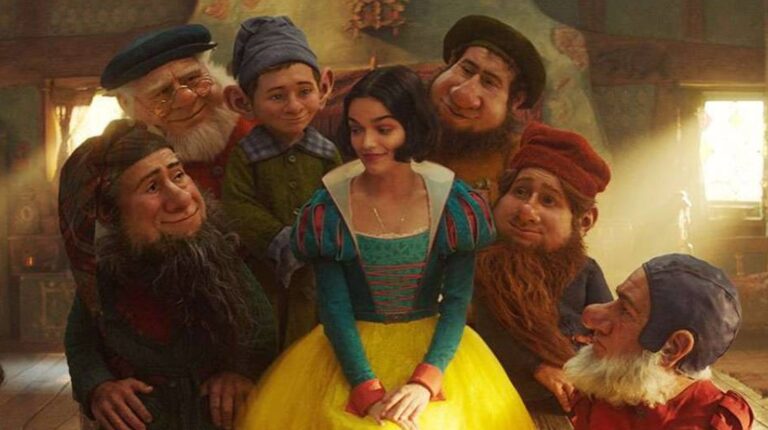
The Player Kings Focuses on the Humanity of Shakespeare

Damien Ryan has adapted Shakespeare’s and Marlowe’s history cycles into two long parts each with 255 minutes and two 15 minute intervals.
This is definitely a show for those who love the Elizabethan language of the two great playwrights, and the high drama that is played out on the stage as the regents work out their relationship to the law, to the people and to the parliament.
I asked Ryan what kind of work was involved in compressing Shakespeare’s and Marlowe’s works into this one long production. What did he choose to leave in, and leave out?
“Yes, [it was] an enormous but joyous task. I’ve been reading and working on these plays for 30 years, so coming to them to create an adapted abridgement of them was really a product of that longer immersion. When it came to determining what to keep, what to cut, what preoccupations we might focus on, it was a case of thinking about the world we live in today, the extraordinary geopolitical events dominating our news cycle, along with the even more important element which is the sheer universality of what Shakespeare is giving us.
“These plays reflect deep-reaching and eternal shared experiences that relate to our inner journey as people, in any time, in any place. So I was looking for what is most human about the connected plays, what recurring motifs are really valuable across the big journey of them, what variety of comedy, political drama, violence, profanity, beauty and tragedy can best keep the audiences’ experience most buoyant and engaging.
“And from there, bringing a draft to the cast who then had a wonderful series of thoughts every day about where to cut, where to go back to the gold mine and dig out some neglected gems.”
As Ryan mentioned above, contemporary world events influenced his selection.
“Yes, on at least a dozen occasions, we sat in the first hour of rehearsal unpicking what was happening in the Assad regime in Syria and reflecting upon it in the play, the world’s terrible war zones at the moment, the revolving door of Australian prime ministerships in the past 15 years, and of course, inevitably, the machinations of the daily Trumpisms and Muskisms we are all consuming, along with many others. And you don’t particularly seek to simply present those obvious images onto the stage, but to reflect and refract how we operate politically in ways that people can draw extrapolations from.”
Did Ryan get some idea from Shakespeare and Marlowe about how political systems fail, and what happens if there is a vacuum?
“Absolutely, [it’s] what these plays are about, great question. And these systems are a vacuum more often than we think, even when they don’t appear so, even when we think we have stable governance or economies, that rarefied air can be borrow oxygen that can very quickly be cut off, particularly in the fast moving, capricious, feckless contemporary age of modern media – the landscape can change so quickly and suddenly we are back in a moral vacuum.
“I think part of what these plays teach us is that politics is and was and remains very vulnerable to cults of personality but that those individuals in the long run are the symptom, not the cause. We think we are watching stories about famous, notorious, powerful individuals but in fact those famous figures are products of a moment, they are built and born by their cultures, they come from seismic, volcanic pressures in society and we tend to get the leaders we deserve at times. But within the ugliness and disappointment of that, we also learn from these plays that people, ordinary, decent people exist and endure above all else, well beyond the terrors of political circumstance, people endure and people carry on.”
Does pure evil exist in the way some leaders govern? Or are they simply misguided?
“I think it’s hard to define what pure evil is, or whether Shakespeare is trying to simply embody that in some of these characters, like Richard 3 for example, that individual leaders can be bent upon destruction and the suffering of others, certainly. I’m certain it exists and politics has myriad exemplars of it, but they tend to come from somewhere, their extremism tends to be born from pressures within a society that explode them to prominence and Shakespeare and Marlowe are certainly reflecting that.
“The miasma or moral pollution of these plays are shaped so that the damage done by the very worst of these leaders is a means of scourging and cleansing from within us the worst of our demons as it were. We are forced to take our medicine and learn from our mistakes, hard as that is. So the villains have a real function in these stories.”
Do Shakespeare and Marlowe ever use satire to show that leaders have feet of clay?
“Yes, continually, I’ve called this the ‘Player Kings’ because it is quite literally about a series of individuals who think the ‘role’ they are playing as king or queen or religious leader or whatever figure of prominence they embody, is real, or significant. But their journeys are toward a recognition that it is just a ‘role’, they cannot keep it, they have to render up that power, that they are frail, fragile and all too human and their story will run toward a revelation of humility.
“As Richard II says, ‘within the hollow crown’ we are ‘dressed in a little brief authority’ and allowed to ‘play a scene’ where we ‘monarchise, be feared and kill with looks’, but it is merely a theatrical illusion as every leader in history has realised.”
The Player Kings from Sport for Jove is at the Seymour Centre, Sydney, until April 5.











Leave a Reply